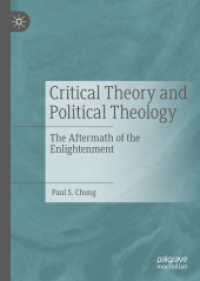- ホーム
- > 洋書
- > ドイツ書
- > Social Sciences, Jurisprudence & Economy
- > Education Science / Pedagogic
- > public education (school & university)
Full Description
This book provides qualitative scholars, particularly those in self-study, with timely research and practical resources for applying critical friendship as a research tool.






